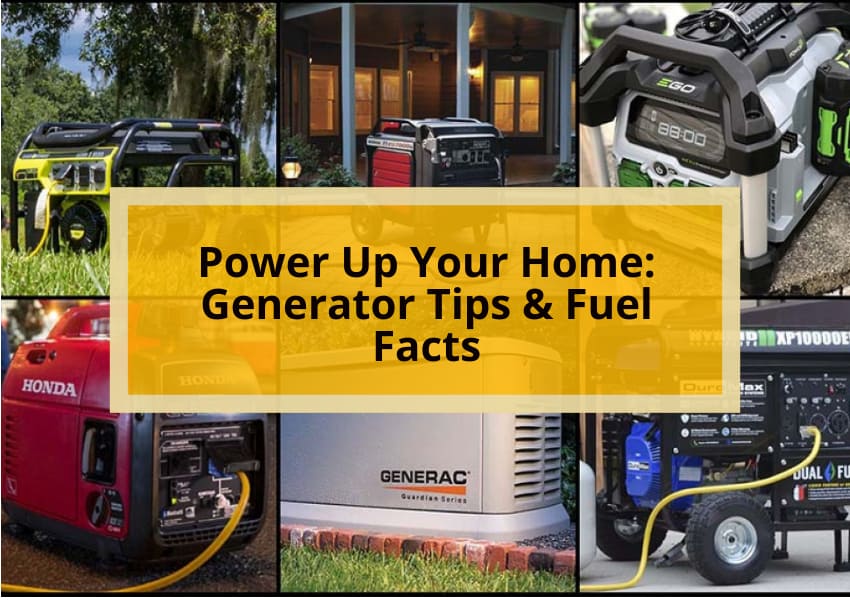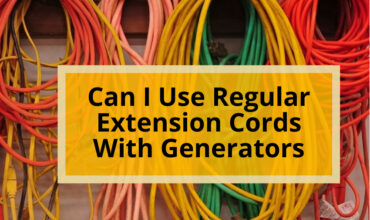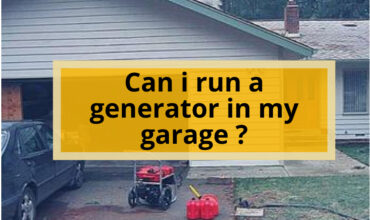Power outages can be a major inconvenience, especially if they last for an extended period of time. Generators provide a reliable source of backup power during such emergencies, enabling homeowners to maintain their daily routines and essential appliances.
However, choosing the right generator and fuel source can be a daunting task, given the vast range of options available in the market. This article aims to provide readers with valuable insights into the world of generators and fuel sources.

Generator Types
The pre-existing knowledge on generator fuel sources and run time highlights the importance of understanding the different types of generators, including standby and portable models, to ensure optimal performance during power outages.
Portable generators are typically designed for shorter increments of time and can run up to 2,000 total hours. These models are ideal for temporary power situations and designed to be moved from one location to another.
Standby generators, on the other hand, are designed for longer-span emergencies and can run up to 3,000 hours for a medium-sized home. They are typically installed permanently and are connected to a home’s electrical system, automatically turning on in the event of a power outage.
Generator maintenance is crucial to ensure that your generator is working at optimal performance during power outages. Regular maintenance includes checking the oil level, air filter, and fuel levels, as well as testing the generator’s battery and starting system.
It is also important to run your generator regularly to prevent the fuel from going stale and to ensure that it is ready for use when needed. Portable generators should be stored in a dry, cool place, while standby generators should be installed by a professional and inspected annually to ensure that they are in good working order.
By following these maintenance guidelines, you can ensure that your generator is ready to power up your home in the event of a power outage.
Fuel Sources
Propane, natural gas, and diesel are the three fuel sources commonly used for generators. Each of these fuel sources has its own set of pros and cons that homeowners should consider before making a decision.
Propane is the most common fuel source used for generators due to its long shelf life and ease of transportation. It is also cleaner burning and produces fewer emissions than other fuel sources. However, propane can be expensive and may not be readily available in certain areas.
Natural gas generators are connected directly to the gas line, making them a convenient option for homeowners who already have natural gas service. They also produce fewer emissions and are less expensive to operate than propane generators. However, natural gas generators can be more expensive to purchase upfront and may not be an option for homeowners who do not have natural gas service.
Diesel generators are known for their fuel efficiency and can be a good option for homeowners who have access to a reliable fuel source. However, they can be more expensive to operate than propane or natural gas generators and may produce more emissions.
When considering fuel sources for a generator, homeowners should weigh the pros and cons of each fuel type and consider the cost comparison between them to determine which option is best for their needs.
also read : Portable Vs. Standby Generators: Power, Convenience, & Protection
Choosing the Right Generator
Choosing the appropriate generator is like selecting the perfect pair of shoes that fit comfortably and provide long-lasting support. Generator sizing is a crucial factor in ensuring that your generator can handle the electrical load of your home during an emergency.
A generator that is too small for your home will not provide sufficient power, while a generator that is too large will consume excess fuel, resulting in higher costs. It is recommended to consult with a professional to determine the appropriate size of generator for your home.
Professional installation is also essential in ensuring that your generator is functioning correctly and safely. Improper installation can lead to potential hazards, such as carbon monoxide poisoning or electrical fires. A professional installation includes proper placement, electrical connections, and venting to ensure that your generator operates effectively and safely.
Additionally, regular maintenance and inspections by a professional will help prolong the lifespan of your generator and ensure that it is always ready for use during an emergency.
Frequently Asked Questions
How do I properly maintain my generator to ensure it lasts for as long as possible?
To ensure longevity of generators, regular maintenance is essential. Tips include checking oil levels, replacing air filters, and inspecting spark plugs. Fuel quality standards should also be followed, including proper storage and using fresh fuel.
Can I use my generator indoors or does it need to be used outside?
Using a generator indoors can lead to carbon monoxide poisoning, electrocution, and fire hazards. Generator safety mandates that they should be used outside, at least 20 feet away from windows, doors, and vents, to prevent dangerous levels of carbon monoxide buildup.
How much noise do generators typically make and is there a way to reduce it?
Generator noise reduction techniques include installing mufflers, using sound barriers, and placing the generator farther away from living areas. The quietest generators on the market include the Honda EU2200i and the Yamaha EF2000iSv2.
Are there any safety precautions I should take when using a generator?
Generator safety tips include keeping the generator at least 20 feet from the house, using a heavy-duty extension cord, and ensuring proper ventilation to prevent carbon monoxide poisoning. Precautions for using a generator indoors include never using it in an enclosed space and using a carbon monoxide detector.
Can I connect my generator directly to my home’s electrical system or do I need to use extension cords?
Although it may be tempting to connect a generator directly to a home’s electrical system, it is important to use a transfer switch to prevent backfeeding and potential electrocution. This generator safety precaution also ensures proper electrical connections.






